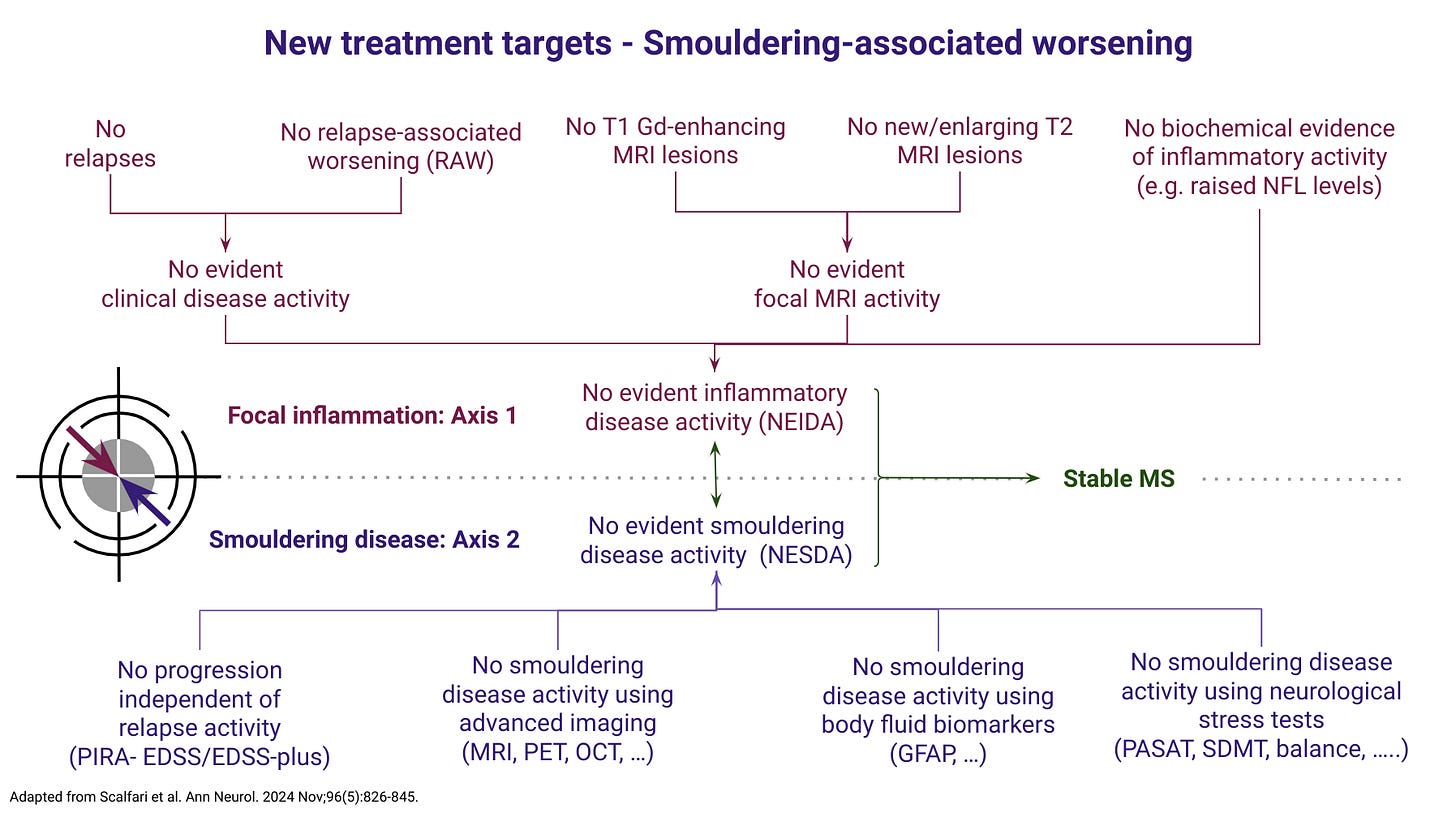Q&A 65 - cladribine and smouldering MS
Cladribine impacts smouldering MS biology and is the main reason we are testing cladribine in more advanced MS to see its effect on upper limb function.
Case study
I have relapsing-remitting multiple sclerosis (RRMS), which was officially diagnosed in 2023. However, I had optic neuritis and brain lesions on MRI found in 2008, followed by MRI activity in 2012, 2018, 2019, 2021 & 2022. The delay in diagnosis was due to a diagnosis of co-morbid autoimmune disease (probable lupus) to which the attacks were attributed. I am thankfully still mobile, but radiologically, I have evidence of extensive disease activity with innumerable brain lesions, a heavy spinal lesion load and cord atrophy. Treatment-wise, I have just finished my first year of cladribine (my first DMD), to which my question relates.
Following the completion of year 1 of oral cladribine (Mavenclad) this autumn, my week nine blood tests showed a modest drop in lymphocytes from 2.0 to 1.5 - does this slight reduction indicate that the treatment has been somewhat ineffective? If so, should I consider an alternative treatment strategy or, if possible, bring forward year 2 on the NHS? For your information, I am at the top of the 40 - 50kg weight band (48.6 kg) and received four tablets per treatment week, which works out less than the recommended 1.75mg/kg - as cladribine’s activity is weight dependent and could this slightly lower dosage be responsible for the modest reduction in lymphocytes? I am concerned about potential disease activity due to resistance to cladribine’s mode of action - is this concern warranted?
Is there any evidence of the efficacy of only one year of treatment on cladribine? Further, what effect, if any, does cladribine have on smouldering disease?
NOTE: General substack newsletters and the microsite are free; only Q&A sessions are restricted to paying subscribers. I can't run and maintain the MS-Selfie microsite, so I must pay people to help me do the work. If people want to ask medical questions unrelated to the Newsletters or Podcasts, they either need to become paying subscribers or email (ms-selfie@giovannoni.net) to request a complimentary subscription.
Prof G’s answer
Q1: Why the delayed diagnosis?
Q2: Does a slight reduction in lymphocyte count indicate that the cladribine treatment has been ineffective?
Q3: should I consider an alternative treatment strategy or, if possible, bring forward year 2 of cladribine treatment on the NHS?
Q4: As cladribine’s activity is weight dependent, could this slightly lower dosage be responsible for the modest lymphocyte reduction? I am concerned about potential disease activity due to resistance to cladribine’s mode of action - is this concern warranted?
Q5: Is there any evidence of the efficacy of only one year of treatment on cladribine?
Q6: What effect, if any, does cladribine have on smouldering disease?
Keep reading with a 7-day free trial
Subscribe to MS-Selfie to keep reading this post and get 7 days of free access to the full post archives.





